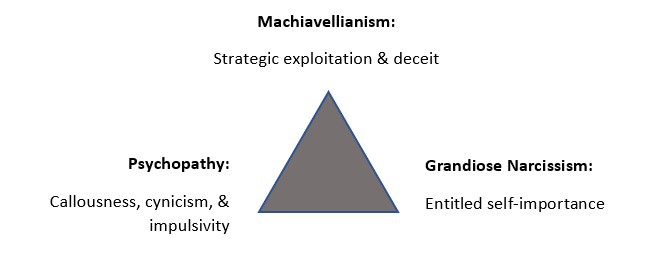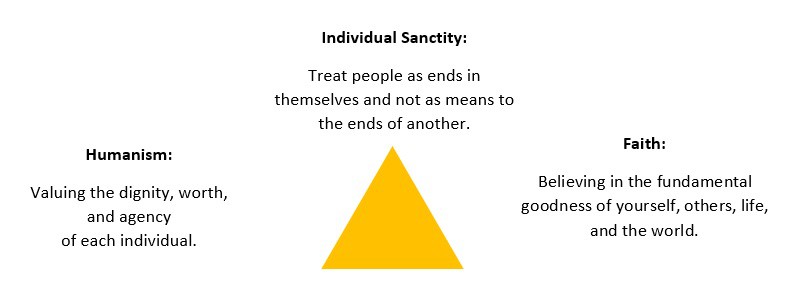Maslow Redux: Love
25 March 2023
There was an optimism in the baby-boom era that I still miss in this time of hear-no-truth, speak-no-truth. Maslow’s comment on love, which is our middle stage of growth, captures that sense: “We must understand love; we must be able to teach it, to create it, to predict it, or else the world is lost to hostility and to suspicion” (Maslow, 1954 in Kaufman, 2020, p. 118). I don’t know if we still believe this but part of me worries that—if we don’t—our troubles are deeper than we may know.
Maslow saw two types of love, D-love or deficiency based (I need more), and B-love or being-based i.e., loving another for being who they are (I give more). Gratification applies only to deficiency, as there is a hungry need to be satiated. Kaufman compared B-love to Erich Fromm’s (1956) mature love, which he characterized as “…active, not passive; a process, an attitude, not a feeling” (p. 120). Mostly, we speak of the feeling. I love him. She loves me. Both typically—but not necessarily—passive.
Irvin Yalom, well-known in psychotherapy, treated loneliness as a challenge with giving love rather than being without love i.e., if you practice giving love, your loneliness will probably lessen (Kaufman, 2020, p. 121) though that is oversimplified as the how of giving love is critical.
Part of my excitement (with these ideas) concerns what are identified by Kaufman as the dark and light triads, illustrated below.

Figure 1: The Dark Triad (Adapted from Kaufman, 2020, p. 122).

Figure 2: The Light Triad (Adapted from Kaufman, 2020, p. 122).
Three selected attributes from the lists outlining the triads are:
Light:
- I prefer honesty to charm
- I tend to applaud the successes of other people
- I enjoy listening to people from all walks of life
Dark:
- I can talk my way into and out of anything
- I’m willing to exploit others to further my own goals
- I do not waste time hanging out with people who are beneath me (Kaufman, pp. 122-124).
Embracing either triangle moves you in polar opposite directions. The dark triangle leads to a narrowing, narcissistically-driven, ego-based famine (that often has the outward look of a feast) while the light triangle may appear impoverished from outside appearances but comes with extraordinary openness, love, generosity, and an enviable(!) indifference to appearances.
The dark/light theme was followed by what I think of as the I/we theme. I realized it driving my car to and from the University of Guelph, along the 403 and 401 highways in Southern Ontario. It is also probably important to know that, prior to realizing this insight, my car was hit by a massive double-carriage gravel hauler during rush hour on the eastbound 401, six or seven years back. We were travelling at about 110 kms/per hour and the gravel hauler made a move into my lane from the right without waiting for me to move.
Although I saw it coming, I knew that if I moved left, into the fast lane, there was a black Lincoln that I would have hit, endangering yet another life. So I took the hit, the driver of the Lincoln saw what happened and accelerated ahead, allowing me space to move into the fast lane and quickly onto the curb. Traffic was flying by, and I was worried about being on the curb or getting out of the car. Within a short time, a tow truck pulled up and helped me inspect the car (wheel and front right quarter panel crumpled to such an extent that the car was undrivable.) Eventually that tow truck driver got me and the car safely to the police station, my VW dealer, and then to their recommended body shop.
Here's why I’m telling you all this: about that time, I started thinking of traffic situations as a we phenomenon i.e., getting safely to and from my destinations isn’t about me, it’s very much about cooperation between us, whichever coalition of us happens to be on the road at the time. Kaufman (2020, p. 126) referred to similar ideas under the heading of universal concern. He cited psychologist David Bakan who claimed that “agency involves self-protection, self-assertion, separation, and isolation, whereas communion involves participation, contact, openness, unity, and ‘non-contractual co-operation.’” I feel like I experienced that non-contractual co-operation the day my grey VW was hit. And this seems to me to play right into the arms of the light triad. And, yes, this is all still under the heading of the growth need known as love. The point being we are social animals who thrive on—and grow from—giving and receiving loving support.
For those of you keen to increase love in your lives, Kaufman didn’t neglect the “how to” aspect of this need. I’ll start with a tool I’ve begun using with clients: the self-compassion scale. Here are some selected items. It would probably be good to have at least a three-point scale of poor (1), so-so (2), or good (3) to rate yourself so you can measure change over time.
- When something painful happens, I try to take a balanced view of the situation 1 2 3
- I try to see my failings as part of the human condition 1 2 3
- When I’m going through a very hard time, I give myself the caring and tenderness I need 1 2 3
- When something upsets me, I try to keep my emotions in balance 1 2 3
- When I feel inadequate in some way, I try to remind myself that feelings of inadequacy are shared by most people 1 2 3
- I try to be understanding and patient toward those aspects of any personality I don’t like [i.e., Ask yourself, what does this person gain from that behaviour and what made her that way?] (Kaufman, 2020, p. 133) 1 2 3
Total score: ____/18
If you want an example of love in action, a precedent life worth looking at, watch the 1992 interview with Claire Nuer and compare her obstacles to yours and her attitude to yours (link in references, below). As she put it, “The only way to create love, safety, and acceptance is by giving them” (Kaufman, 2020, p. 119).
Dan Chalykoff is near completion of an M.Ed. in Counselling Psychology and accreditation in Professional Addiction Studies. He works as a supervised psychotherapist at CMHA-Hamilton where his focus is addiction, trauma, burnout, and major life changes. He writes these blogs to increase (and share) his own evolving understanding of ideas. Since 2017, he has facilitated two voluntary weekly group meetings of SMART Recovery. Please email him (danchalykoff@hotmail.com) to be added to or removed from the Bcc’d emailing list.
References
Kaufman, S. B. (2020). Transcend: The new science of self-actualization. TarcherPerigee Books.
Bendayan, S. & Newman S. (1992). Oral history interview with Claire Nuer. https://collections.ushmm.org/search/catalog/irn513092
Comments